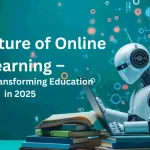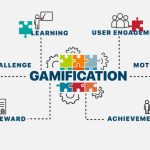Introduction
Education is one of the most powerful tools available to humanity. It is not simply a process of acquiring knowledge from books or classrooms, but a lifelong journey that shapes individuals, communities, and nations. Throughout history, societies that invested in education have flourished in science, technology, art, and culture, while those that ignored it struggled to progress. Today, as the world becomes more globalized and technology-driven, the importance of education is greater than ever before. It does not only determine economic growth but also defines values, culture, and the overall quality of life of future generations.
The Meaning and Purpose of Education
At its core, education is the transfer of knowledge, values, and skills from one generation to another. However, its purpose goes beyond memorizing facts or passing exams. True education encourages curiosity, critical thinking, creativity, and problem-solving. It teaches individuals how to question the world around them, develop new ideas, and contribute positively to society.
The goal of education is not limited to creating workers for industries but also to developing responsible citizens who can participate in democracy, respect diversity, and work for the collective good. A well-educated society tends to be healthier, more peaceful, and more prosperous compared to one where education is neglected.
Education as a Driver of Economic Growth
One of the clearest benefits of education is its impact on economic development. Nations with strong education systems usually have higher levels of productivity, innovation, and competitiveness in the global market. For example, countries like Japan, South Korea, and Finland transformed their economies through large investments in education.
Education equips individuals with skills needed for employment, entrepreneurship, and leadership. In today’s digital world, where artificial intelligence and automation are rapidly changing industries, the workforce must constantly update its knowledge and skills. Lifelong learning is no longer optional—it is essential. By preparing young people with critical skills, education ensures that future generations can adapt to changing economic demands.
Social Benefits of Education
Education is also a great equalizer. It provides opportunities for individuals from different backgrounds to improve their lives, regardless of their social or economic status. A child born into poverty, if given access to quality education, can break the cycle of hardship and build a better future.
Furthermore, education fosters social harmony by teaching values such as tolerance, respect, and empathy. In a world where cultural and religious differences often lead to conflict, education can build bridges of understanding. Schools and universities are not only places to learn academic subjects but also environments where students from diverse backgrounds interact, share experiences, and build lifelong friendships.
Education and Technology
The rise of digital technology has completely transformed education. Online platforms, digital classrooms, and educational apps have made learning more accessible than ever before. During the COVID-19 pandemic, millions of students continued their studies through virtual classes, proving that technology can keep education alive even in challenging times.
However, this digital revolution also highlights the importance of bridging the “digital divide.” Many students around the world lack access to computers, internet connections, or even basic electricity. Without solving these challenges, future generations risk being left behind in an increasingly technology-driven world.
Challenges in Education
Despite its importance, education faces serious challenges globally. Millions of children, especially in developing countries, are still unable to attend school due to poverty, gender inequality, or conflict. Even in advanced nations, issues such as rising tuition fees, student debt, and unequal access to resources remain pressing concerns.
Quality of education is another challenge. Having schools and teachers is not enough; what truly matters is how well students learn and apply their knowledge. Outdated teaching methods, lack of creativity in classrooms, and excessive focus on exams often prevent students from reaching their full potential.
The Role of Teachers and Parents
Teachers are the backbone of education. Their role goes beyond delivering lessons—they inspire, mentor, and guide students throughout their academic journey. A motivated and skilled teacher can change a child’s life, while poor teaching can discourage learning. Therefore, societies must invest in teacher training, respect their profession, and provide them with the resources they need.
Parents also play a critical role. Education begins at home, long before a child enters school. By encouraging curiosity, supporting learning, and providing emotional stability, parents lay the foundation







